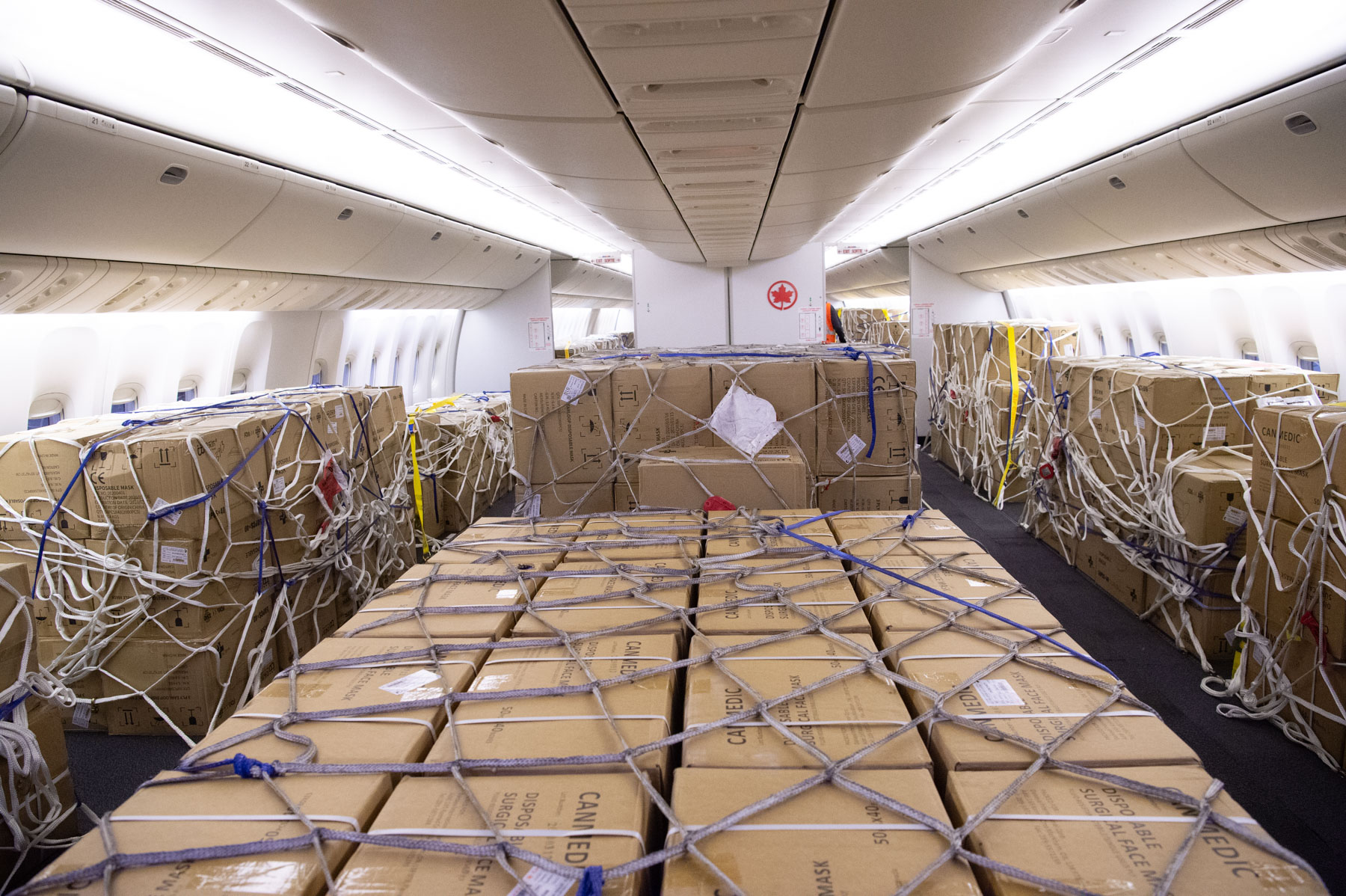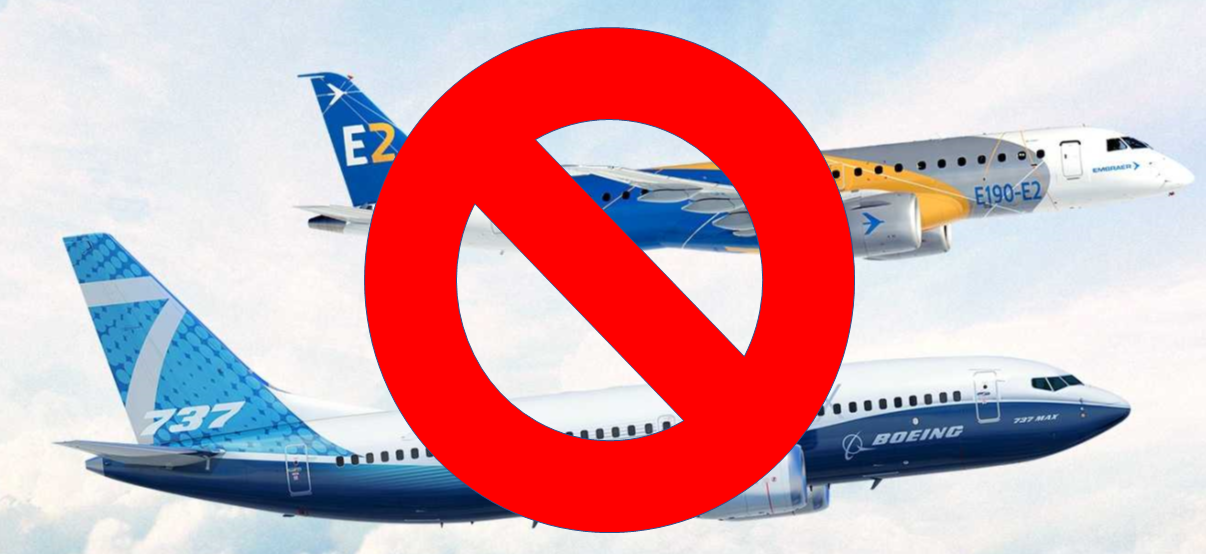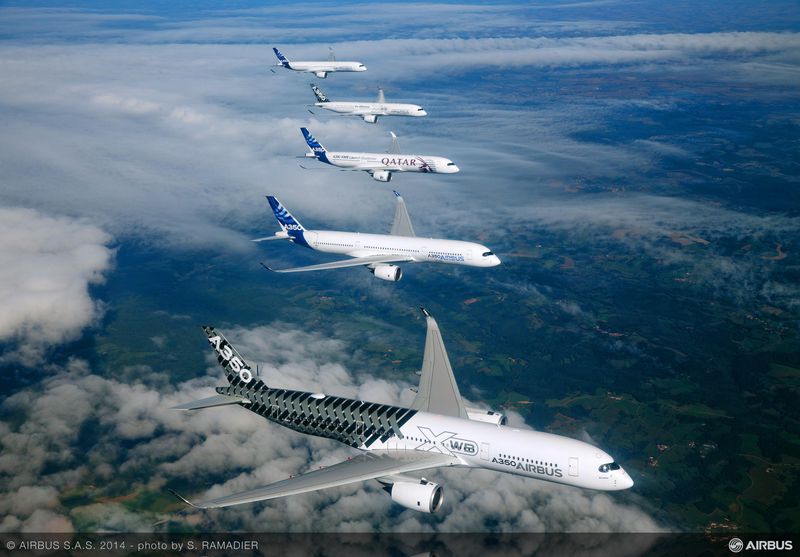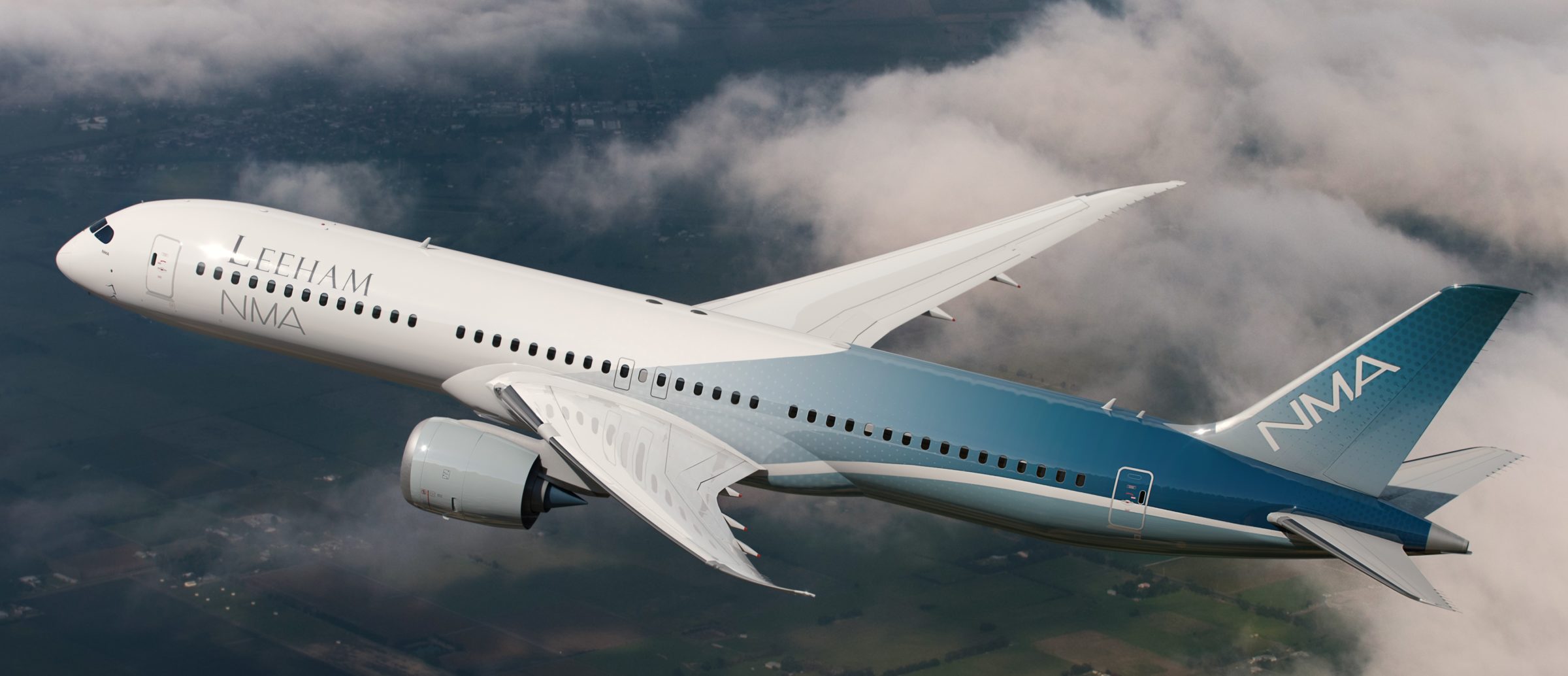Leeham News and Analysis
There's more to real news than a news release.
 Leeham News and Analysis
Leeham News and Analysis
- The Boeing 767 Cross Section, Part 1 November 24, 2022
- Movie Review: Devotion November 21, 2022
- China will accelerate development of its commercial aerospace sector November 21, 2022
- Bjorn’s Corner: Sustainable Air Transport. Part 46. eVTOL comparison with helicopter November 18, 2022
- The economics of a 787-9 and A330-900 at eight or nine abreast November 16, 2022
Pontifications: Taking a knife to a gunfight
April 27, 2020, © Leeham News: There is a great line in the movie, The Untouchables. Sean Connery’s character tells an assassin that he’s bringing a knife to a gunfight.
That’s what came to mind when Embraer says it will seek remedies against Boeing following the latter’s terminating the joint venture agreement between the two companies.
In the movie, the assassin lured Connery into a trap. Connery was gunned down by a machine gun. But don’t expect Boeing to be lured into any trap by Embraer.
Boeing doesn’t pull a move like this without thinking through all the possibilities. It may muff the thought process, as will be noted below, but it does think through alternatives.
Posted on April 27, 2020 by Scott Hamilton
Analysis: The collapse of the Boeing-Embraer joint venture
By the Leeham News Team
Analysis
April 25, 2020, © Leeham News: The Boeing-Embraer joint venture is off.
Boeing called off the JV, saying Embraer didn’t satisfy all the conditions required.
The impact to Embraer is more profound than to Boeing.
When the JV was announced in 2019, the advantages for Boeing were:
- Access to EMB engineers at a time when Boeing’s are aging and ready to retire.
- Access to much lower cost base in Brazil.
- KC-390 program.
- Revenue from EMB Commercial services.
- E2 program, though this is tangential.
The advantages for Embraer were:
- Access to Boeing’s vast customer base, marketing power, balance sheet (again, pre-virus) and capital markets.
- Access to work on new airplane programs: NMA (at the time), Future Small Airplanes (single aisle, either to compete with A220 or larger).
- Work for its engineers.
- A future beyond the struggling E2 and beyond the fanciful turboprop concept.
- A future for Embraer Commercial Airplanes, which in LNA’s view was increasingly risky.
Posted on April 25, 2020 by Scott Hamilton
Can a passenger airliner run as a freighter with today’s tariffs? Part 4.
By Bjorn Fehrm
Subscription Required
Introduction
April 23, 2020, © Leeham News: We spent the last weeks checking if passenger airliners used as belly freighters make economic sense.
With the present air freight prices, it does. The high freight prices are a result of half the World’s freight capacity disappearing with the grounding of passenger jets.
Our economic analysis assumed standard densities for the belly cargo. What happens if this is no longer the case? Can more voluminous cargo fly in the passenger cabin?

Figure 1. Air Canada Boeing 777 with humanitarian supplies (face masks) transported in the cabin. Source: Air Canada.
Summary:
- Widebody aircraft can temporarily fly as belly freighters without loading cargo in the cabin, but enabling cabin cargo will improve the business case with the present lower-density cargo.
- For single-aisle jets the belly cargo holds are too small, a cabin cargo loading system is necessary for efficient operation.
- Is it OK to take out the seats and load cargo in the cabin? For normal cargo no, it isn’t. We check what is required.
Posted on April 23, 2020 by Bjorn Fehrm
Supply chain focus: Hexcel’s first 2020 quarter
By Bjorn Fehrm
April 22, 2020, ©. Leeham News: With the COVID-19 meltdown of airline traffic and aircraft deliveries, we place a special focus on the airliner industry supply chain in the next months.
Hexcel Corporation reported its 1Q2020 yesterday. In addition to the absence of MAX deliveries for a year, the mounting COVID crisis meant revenue was down with 11% year on year and profits 40%. The merger with Woodward Inc. is off. “This is the time for crisis management, not a merger,” said management.
Read more
Posted on April 22, 2020 by Bjorn Fehrm
Is COVID-19 a Force Majeure event?
Editor’s Note: Airbus, Boeing and Embraer and other OEMs face requests for deferrals and perhaps cancellations of orders as a result of COVID-19. In addition, Boeing now faces cancellation requests for the 737 MAX grounding, now in its 13th month. While Boeing’s contracts generally allow Boeing or the customer to cancel the order after the 12th month, the COVID crisis raises a new element: canceling by Force Majeure and something called the Doctrine of Frustration.
The following analysis appeared March 12, 2020, on the website of the law firm Shearman & Sterling law firm. The authors are listed at the end of this article. It is reprinted here with permission.
Following the rapid spread of the novel coronavirus (“COVID-19”) that was first reported in Wuhan, China at the end of 2019, the World Health Organization declared COVID-19 to be a pandemic on March 11, 2020.
In this note, we consider how force majeure provisions in commercial contracts and the related common law doctrine of frustration may be engaged in the context of the COVID-19 outbreak. While this analysis focuses primarily on the position under English law, we have included a PRC law perspective because of the significant impact COVID-19 has had on business in China. We also suggest steps that parties may take to safeguard their positions in view of the evolving situation.
Posted on April 9, 2020 by Scott Hamilton
Pontifications: Assessing the impact of COVID-19: today’s take
April 6, 2020, © Leeham News: It’s going to be quite a while before there is a clear understanding how coronavirus will change commercial aviation.
LNA already touched on impacts to Airbus, Boeing and Embraer. None of it is good. For Boeing, burdened with the additional stress of the 737 MAX, is in the worst position. Even when the MAX is recertified, there won’t be many—or any—customers in a position to take delivery of the airplane.
Bearing in mind that what’s true today will change in a day, or even an hour, let’s take a rundown of where things seem to stand now.
Posted on April 6, 2020 by Scott Hamilton
Engine maker, lessor see Boeing’s next airplane as a single-aisle design
Subscription Required
Now open to all readers.
By Scott Hamilton
April 2, 2020, © Leeham News: Boeing’s New Midmarket Airplane, or a new concept, is the last thing on the plate right now.
But Boeing’s future product strategy nevertheless requires long-term thinking even as the short- to medium-term is in chaos.
Interviews were conducted March 2 at a major aerospace conference in Austin (TX), just days before the coronavirus crisis exploded exponentially across the globe.
The CEO of the major lessor, Avolon, declared the NMA dead and predicted a new single-aisle airplane will be Boeing’s next project.
An executive of Pratt & Whitney offered a similar view.
Summary
- “The NMA is gone. Long live the NMA. That moment has passed.
- Back to the 757 replacement concept and, now, A321XLR competitor.
- Single-aisle vs light twin-aisle is part of the challenge.
- New airplane must be “dramatically” more efficient than MAX, neo.
- 2030 decade is the quickest this dramatic improvement can be achieved.
Posted on April 2, 2020 by Scott Hamilton
Pontifications: Critical step in Boeing MAX recertification target: May
March 30, 2020, © Leeham News: Barring further issues, the FAA Type Inspection Authorization for the MAX is targeted for the second half of May, LNA learned.
This is a critical step in recertifying the airplane.
Also barring more unexpected events in a year filled with them, Boeing should resume production of the 737 MAX in May, LNA confirmed.
Posted on March 30, 2020 by Scott Hamilton
Boeing has $15bn in liquidity and can survive in short term; credit markets need to reopen
By Scott Hamilton
March 24, 2020, © Leeham News: Boeing CEO David Calhoun said the company has $15bn in liquidity and can survive in the short term, but federal aid is needed as long as the credit markets aren’t open.
The US Defense Department is working to accelerate payments to Boeing, which has a large defense business. Revenue at Boeing Global Services is down as airlines across the globe shut down or sharply reduced operations.
Calhoun made his remark on CNBC’s Squawk Box today.
Posted on March 24, 2020 by Scott Hamilton
Coronavirus upends Airbus, Embraer in addition to Boeing woes
Subscription Required
By Scott Hamilton
Introduction
March 23, 2020, © Leeham News: The dramatically and continuously worsening impact of coronavirus worldwide is upending Boeing—more than it has been—and Airbus.
Boeing is considering shutting the wide-body production lines, The Seattle Times reported. It also wants US government aid.
Airbus shut its assembly lines in France and Spain for four days in response to federal restrictions.
LNA previously wrote about the impact it sees on Boeing and, to a degree, on Airbus.
These analyses are updated to the latest circumstances.
We also add a look at Embraer delivery stream for March-December.
Summary
- Even if Boeing recertifies the 737 MAX by mid-year, deliveries now in doubt.
- Customers can cancel MAXes without penalty.
- Airbus faces massive deferrals under the circumstances. Penalties apply.
- Embraer’s customer concentration is in USA.
Posted on March 23, 2020 by Scott Hamilton
Email Subscription
Twitter Updates
My TweetsAssociations
Aviation News-Commercial
Commentaries
Companies-Defense
Resources
YouTube
Archives
- November 2022
- October 2022
- September 2022
- August 2022
- July 2022
- June 2022
- May 2022
- April 2022
- March 2022
- February 2022
- January 2022
- December 2021
- November 2021
- October 2021
- September 2021
- August 2021
- July 2021
- June 2021
- May 2021
- April 2021
- March 2021
- February 2021
- January 2021
- December 2020
- November 2020
- October 2020
- September 2020
- August 2020
- July 2020
- June 2020
- May 2020
- April 2020
- March 2020
- February 2020
- January 2020
- December 2019
- November 2019
- October 2019
- September 2019
- August 2019
- July 2019
- June 2019
- May 2019
- April 2019
- March 2019
- February 2019
- January 2019
- December 2018
- November 2018
- October 2018
- September 2018
- August 2018
- July 2018
- June 2018
- May 2018
- April 2018
- March 2018
- February 2018
- January 2018
- December 2017
- November 2017
- October 2017
- September 2017
- August 2017
- July 2017
- June 2017
- May 2017
- April 2017
- March 2017
- February 2017
- January 2017
- December 2016
- November 2016
- October 2016
- September 2016
- August 2016
- July 2016
- June 2016
- May 2016
- April 2016
- March 2016
- February 2016
- January 2016
- December 2015
- November 2015
- October 2015
- September 2015
- August 2015
- July 2015
- June 2015
- May 2015
- April 2015
- March 2015
- February 2015
- January 2015
- December 2014
- November 2014
- October 2014
- September 2014
- August 2014
- July 2014
- June 2014
- May 2014
- April 2014
- March 2014
- February 2014
- January 2014
- December 2013
- November 2013
- October 2013
- September 2013
- August 2013
- July 2013
- June 2013
- May 2013
- April 2013
- March 2013
- February 2013
- January 2013
- December 2012
- November 2012
- October 2012
- September 2012
- August 2012
- July 2012
- June 2012
- May 2012
- April 2012
- March 2012
- February 2012
- January 2012
- December 2011
- November 2011
- October 2011
- September 2011
- August 2011
- July 2011
- June 2011
- May 2011
- April 2011
- March 2011
- February 2011
- January 2011
- December 2010
- November 2010
- October 2010
- September 2010
- August 2010
- July 2010
- June 2010
- May 2010
- April 2010
- March 2010
- February 2010
- January 2010
- December 2009
- November 2009
- October 2009
- September 2009
- August 2009
- July 2009
- June 2009
- May 2009
- April 2009
- March 2009
- February 2009
- January 2009
- December 2008
- November 2008
- October 2008
- September 2008
- August 2008
- July 2008
- June 2008
- May 2008
- April 2008
- March 2008
- February 2008








